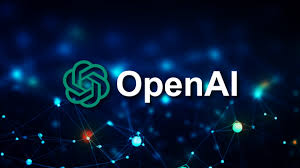With significant business agreements that will also enable it to train its AI on more Asian-language content and user behavior, OpenAI is stepping into the Asian market after Chinese AI company DeepSeek made a big splash in its American backyard. This will pave the way for the company to eventually conduct more business in these regions independently.
OpenAI today announced a strategic partnership with Kakao, the South Korean IT firm that runs KakaoTalk, one of the most widely used messaging apps in the area.
The action was taken a day after SoftBank also made a significant commitment to using OpenAI: it has set aside $3 billion to implement OpenAI technology throughout its subsidiaries and group operations and to form a joint venture, SB OpenAI Japan, to develop solutions tailored for the nation’s businesses.
Kakao CEO Shina Chung and OpenAI CEO Sam Altman co-led an event in Seoul earlier today to announce today’s Kakao news, which will first focus on three initiatives.
In addition to integrating OpenAI technology into KakaoTalk, the firms want to create a new Korean-language assistant named Kanana that is powered by OpenAI. Kakao will also become a customer of OpenAI, utilizing ChatGPT Enterprise internally among its staff.
The SoftBank statement, meanwhile, is merely the most recent step in what appears to be a fairly extensive partnership between the two businesses. The two are supposedly also collaborating on the Stargate project, which aims to construct AI superservers and other infrastructure in the United States. SoftBank is also apparently considering a significant investment in OpenAI, though this has not been confirmed.
Both of these collaborations appear to be significant business agreements that will enable additional populations to access OpenAI services in their native tongues.
At the press conference today, Altman declared, “Korea is a very impressive market.” In Korea, AI adoption is exceptionally advanced. The climate for deploying AI is particularly favorable when taking into account a variety of industries, including semiconductors, internet corporations, and the energy sector. It is a rapidly expanding market that is very significant to us.
Beyond that, however, the agreements will help OpenAI in yet another important aspect in both the Kako and SoftBank cases.
The American business is still developing and refining its Large Language Models. Deals with major players in Korea and Japan, with their access to millions of consumers in their respective markets, gives OpenAI an opportunity to unlock new linguistic doors.
This is particularly crucial in light of DeepSeek. The Chinese AI company will have sent a very clear message to OpenAI that a company based outside of the United States has gotten ahead of it in gaining traction in English-language generative AI if it turns out to be more than just a passing fad and isn’t overwhelmed by legal concerns about copyright, protecting personal data, and other issues.
OpenAI must therefore keep growing globally, including in terms of its capacity to function equally well in other languages as it does in English.
It’s noteworthy as well because SoftBank once saw an entirely different path and opportunity for itself.
It announced a new startup in 2023, taking advantage of the chance to develop for its native tongue in an AI environment that is dominated by English natural language services. The goal of SB Intuitions was to develop generative AI and LLMs in Japanese.
It’s unclear what’s going on with the business; it may never have taken off, or it may be included into the JV or something else entirely. We’ve spoken with the business and will provide an update when we find out more.
SoftBank OpenAI Japan
The most recent strategic partnership follows OpenAI’s announcement on Monday of a joint venture with SoftBank, which would invest $3 billion a year to deploy the U.S. AI company’s products across its group firms, including ChatGPT Enterprise, OpenAI’s API, and agent products like Operator. Through their joint venture, “SB OpenAI Japan,” the Japanese tech giant and OpenAI will only provide the U.S. AI startup’s enterprise technologies to major Japanese businesses.
Last week, OpenAI unveiled the o3-mini, the newest and most affordable reasoning model, and Operator, an agent that can do online reservations for restaurants and vacation planning. Additionally, ChatGPT’s developer introduced Deep Research, a new feature that can conduct in-depth web research for challenging assignments.
ICYMT: NIA announces new fees for Ghana card services
According to a statement from SoftBank, Arm, the U.K. chip designer that the company purchased in 2016, will also leverage OpenAI capabilities to boost productivity.
It has been reported that SoftBank is in negotiations to spearhead a $40 billion investment round for OpenAI, which could put the company’s valuation at $300 billion.
In addition, OpenAI announced last month that it would launch a joint venture dubbed the Stargate Project with SoftBank and Oracle to construct many AI data centers in the United States. A sizable data center in Texas will serve as the project’s launchpad. The three businesses want to invest $100 billion in Stargate initially, with the possibility of adding up to $500 billion over the next four years.
SOURCE: TECH CRUNCH


























